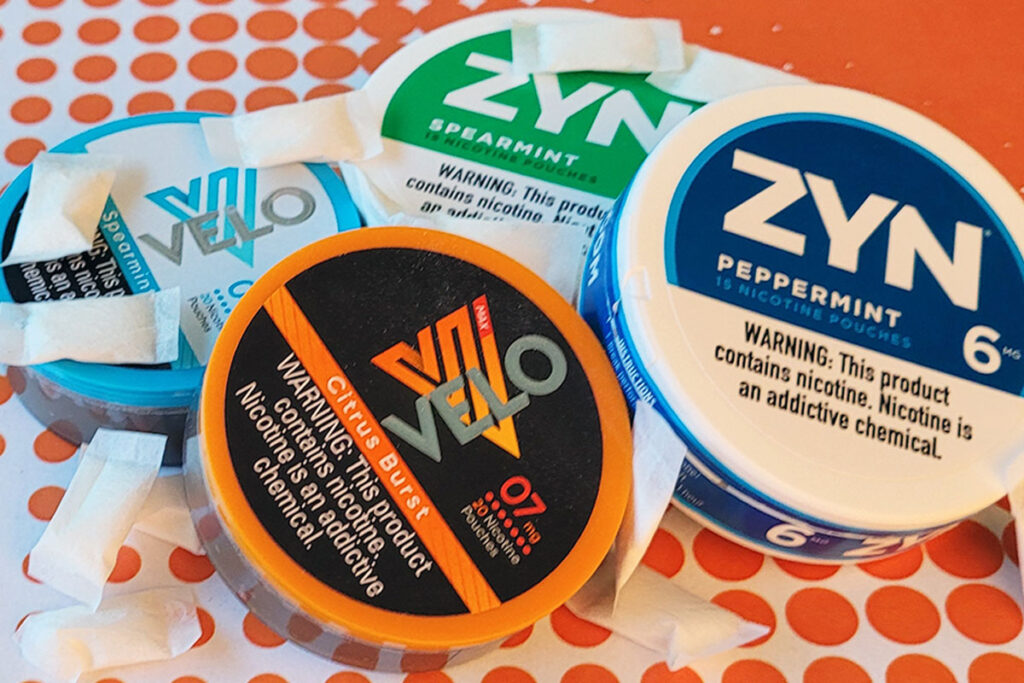Are Nicotine Pouches Safe? An In-Depth Analysis
Nicotine pouches have quickly emerged as a popular alternative to smoking and vaping, marketed as a cleaner, discreet option for nicotine consumption. But how safe are these products? This article provides an authoritative review based on scientific data, user cases, and regulatory insights to help you make an informed decision.
Introduction to Nicotine Pouches

Nicotine pouches are small, tobacco-free products that deliver nicotine through oral absorption. Users place them between their gum and lip, where nicotine is absorbed through the mucous membrane. These pouches are marketed as a safer alternative to smoking, often accompanied by flavors like mint or citrus, making them particularly appealing to younger users. Brands like ZYN, Velo, and On! dominate the market.
While these products have gained traction, especially among smokers looking for a less harmful alternative, there are growing concerns about their safety, particularly regarding addiction potential, oral health risks, and long-term impacts on the cardiovascular system.
How Do Nicotine Pouches Work?

Nicotine pouches contain nicotine salts, which are a more stable and palatable form of nicotine than the freebase nicotine found in cigarettes. The composition includes nicotine, flavorings, and fillers such as cellulose or salt to provide structure.
Once placed in the mouth, nicotine is absorbed into the bloodstream through the gum tissue, bypassing the lungs entirely—an important distinction from both smoking and vaping. This discreet and spit-free nature of the product appeals to users in settings where smoking is prohibited.
Nicotine Pouches vs. Traditional Tobacco Products
There are fundamental differences between nicotine pouches and traditional tobacco products, especially cigarettes. Nicotine pouches contain no tobacco, which eliminates exposure to many harmful chemicals found in cigarettes, such as tar and carbon monoxide. However, the nicotine content in these pouches can vary, with some brands offering high-nicotine versions that rival the levels found in cigarettes.
Nicotine pouches are also distinct from smokeless tobacco products, such as chewing tobacco or snus, as they do not involve any tobacco leaf. The removal of tobacco makes these products potentially less harmful but not risk-free.
The Perception of Safety
Many nicotine pouches are marketed as “tobacco-free” and “smoke-free,” which can give the impression that they are safe. However, “tobacco-free” does not mean “nicotine-free,” and nicotine itself is highly addictive. Marketing strategies often focus on the convenience and discretion of these products, emphasizing their lack of smoke and odor. This positioning is particularly effective in targeting smokers who want to continue using nicotine in places where smoking is not allowed, like offices or airplanes.
Flavored nicotine pouches are another growing concern. Flavors like mango, citrus, and mint have drawn the attention of younger users, raising public health concerns about nicotine addiction in adolescents. The rise of social media influencers, dubbed “Zynfluencers,” promoting nicotine pouches adds another layer to the potential risks of youth nicotine initiation.
Health Risks of Nicotine Pouches
Despite their tobacco-free status, nicotine pouches come with health risks. Nicotine is a stimulant that affects the central nervous system, and its use can lead to a range of immediate and long-term effects, including:
- Immediate Effects: Mouth irritation, nausea, dizziness, and heart palpitations are common short-term side effects.
- Long-Term Effects: Prolonged nicotine use can increase the risk of addiction, elevated heart rate, high blood pressure, and potentially cardiovascular disease. According to studies from the American Heart Association, chronic nicotine consumption can increase the risk of heart attacks and strokes.
Oral Health Concerns
One of the most concerning risks associated with nicotine pouches is their impact on oral health. Although these products do not involve smoke, they can still lead to issues like:

- Gum irritation and gum recession due to the direct contact of the pouch with oral tissues.
- Tooth decay from the presence of sugar or flavor additives in some pouches.
- Increased risk of oral cancer, although the connection between nicotine pouches and cancer has not yet been definitively established.
Addiction Risks and Nicotine Dependence
Nicotine, regardless of its delivery method, is a highly addictive substance. Regular use of nicotine pouches can lead to dependence, with users experiencing withdrawal symptoms if they attempt to quit. According to the Centers for Disease Control and Prevention (CDC), nicotine addiction can lead to changes in brain chemistry, making it difficult to stop using the substance, especially for adolescents whose brains are still developing.
The ease of use and the ability to consume nicotine discreetly in environments where smoking is not allowed may contribute to a higher risk of addiction. In fact, studies show that the addiction potential of nicotine pouches is similar to that of cigarettes, making them a poor choice for non-smokers or individuals trying to quit nicotine entirely.
Nicotine Pouches and Cardiovascular Health
Nicotine is known to have stimulant effects that can stress the cardiovascular system. It increases heart rate, blood pressure, and can contribute to the development of hypertension. Long-term use can lead to serious cardiovascular complications, especially in individuals with pre-existing heart conditions.
While nicotine pouches may reduce exposure to the harmful chemicals found in cigarette smoke, the nicotine itself still poses risks to heart health. Some studies suggest that switching to nicotine pouches from smoking may offer some health benefits, but this does not mean that the pouches are without risk.
Comparison of Risks: Smoking, Vaping, and Nicotine Pouches
In terms of harm reduction, nicotine pouches may offer some advantages over smoking and vaping. Smoking is the most dangerous form of nicotine consumption, responsible for thousands of harmful chemicals and increased risks of cancer, lung disease, and heart disease. Vaping eliminates many of these toxins but introduces other risks, such as exposure to volatile organic compounds and potential lung damage.
Nicotine pouches, being tobacco- and smoke-free, eliminate many of these risks but remain far from risk-free. The absence of combustion reduces exposure to harmful by-products, but the nicotine in these pouches still contributes to addiction, oral health issues, and cardiovascular strain.
Regulatory Oversight and Public Health Concerns
The regulatory landscape for nicotine pouches is still evolving. In the United States, the FDA has classified nicotine pouches as tobacco products, even though they do not contain any tobacco. This means they are subject to certain regulations, including age restrictions and marketing limitations. However, the lack of long-term studies on the health effects of these products has raised concerns among public health experts.
The European Union has stricter regulations, limiting the nicotine content in pouches to 20 mg per pouch. However, in both regions, experts call for more comprehensive regulations to address the lack of safety data and prevent youth from accessing these products.
FAQs
Are nicotine pouches a safe way to quit smoking?
Nicotine pouches are considered a harm-reduction tool and may be safer than smoking. However, they are not risk-free and should not be used as a long-term substitute for quitting nicotine entirely.
Can nicotine pouches cause cancer?
There is currently no conclusive evidence linking nicotine pouches to cancer, but nicotine itself is not classified as a carcinogen. The long-term risks, especially regarding oral cancers, require more research.
Are nicotine pouches safe for pregnant women?
No, nicotine pouches are not safe for pregnant women. Nicotine can harm fetal development, leading to complications such as premature birth and low birth weight.
What are the long-term effects of using nicotine pouches?
Long-term use of nicotine pouches can lead to addiction, oral health problems, and cardiovascular issues. More studies are needed to fully understand the long-term health consequences.
How do nicotine pouches affect dental health?
Nicotine pouches can cause gum recession, tooth decay, and irritation of the oral mucosa. They are not a safe option for maintaining oral health.
Can teenagers legally use nicotine pouches?
No, nicotine pouches are regulated as tobacco products, and most countries, including the US, have set the legal age for purchase at 18 or 21. However, enforcement of these laws varies.
Conclusion: Are Nicotine Pouches Safe?
While nicotine pouches may offer a safer alternative to smoking or vaping, they are not without risks. Nicotine addiction, cardiovascular health concerns, and oral health impacts are just some of the potential downsides of regular use. As with any nicotine product, the best course of action is to seek help in quitting nicotine entirely. For those unable to quit, using nicotine pouches as part of a harm reduction strategy may be beneficial, but it is important to stay informed and cautious.







